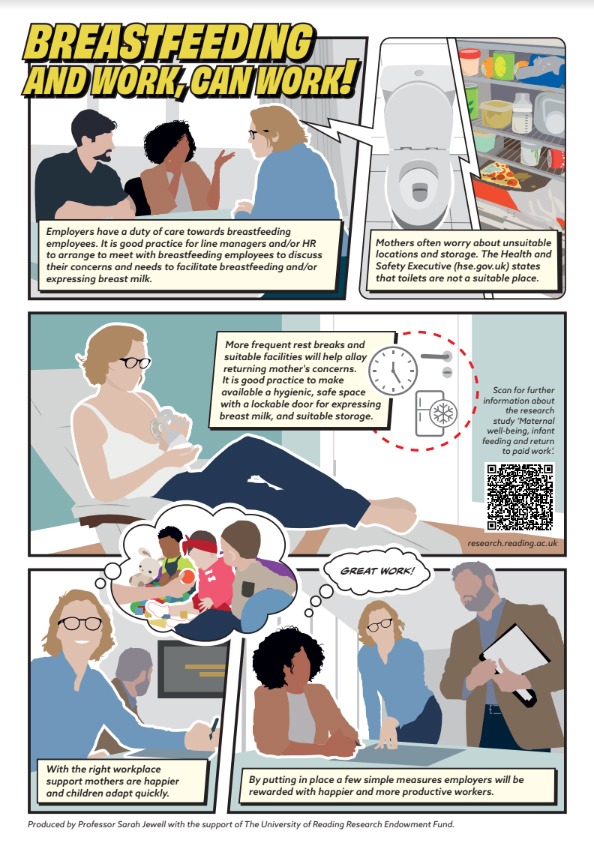Returning to work after maternity leave is a significant transition for new mothers. This period can bring a mix of emotions, challenges, and adjustments, particularly when it comes to balancing paid work and infant feeding. Professor Jewell’s recent study, Maternal Well-Being, Infant Feeding, and Return to Paid Work, sheds light on this critical period in a mother’s life, offering insights into how returning to work affects both maternal well-being and infant feeding practices.
The Challenges of Returning to Work
The study highlights that one of the primary concerns for new mothers returning to work is the ability to continue breastfeeding. Many mothers face difficulties in finding the time and space to express milk, leading to stress and, in some cases, a decision to wean earlier than planned. These challenges are particularly pronounced in workplaces that lack breastfeeding-friendly policies, such as private areas for pumping and flexible work schedules.
The Impact on Maternal Well-Being
Professor Jewell’s research underscores the strong connection between a mother’s ability to continue breastfeeding and her overall well-being. Mothers who can maintain their desired breastfeeding routines while working often report higher levels of satisfaction and lower levels of stress. Conversely, those who encounter obstacles in breastfeeding at work may experience feelings of guilt, anxiety, and a sense of loss, contributing to decreased maternal well-being.
The Role of Workplace Support
The study points to the critical role that workplace support plays in facilitating successful breastfeeding and promoting maternal well-being. Supportive measures include providing lactation rooms, flexible work hours, and a culture that normalizes breastfeeding. Such initiatives not only benefit the mother but also contribute to better health outcomes for the infant, which can lead to fewer sick days and higher productivity in the long run.
The Importance of Policy and Education
One of the key takeaways from Professor Jewell’s study is the importance of workplace policies that support breastfeeding. Employers who adopt breastfeeding-friendly policies not only help mothers to meet their breastfeeding goals but also create a more inclusive and supportive work environment. The study suggests that education for both employers and employees about the benefits of breastfeeding and the needs of breastfeeding mothers is essential.
Recommendations for Employers
Professor Jewell’s research concludes with practical recommendations for employers:
- Create Dedicated Spaces: Provide private, hygienic, and comfortable spaces for breastfeeding or expressing milk.
- Offer Flexible Work Arrangements: Allow flexible working hours or breaks to accommodate breastfeeding needs.
- Foster a Supportive Culture: Educate staff and management on the importance of supporting breastfeeding colleagues, helping to reduce stigma and encourage a supportive environment.
- Implement Clear Policies: Develop and communicate clear policies that outline the company’s commitment to supporting breastfeeding employees.
Conclusion
Professor Jewell’s study provides valuable insights into the intersection of maternal well-being, infant feeding, and the return to paid work. It highlights the importance of workplace support in helping mothers continue breastfeeding, which in turn benefits their well-being and productivity. For employers, the study serves as a reminder of the positive impact that supportive policies can have not only on individual employees but also on the broader workplace culture.
By understanding and addressing the challenges that breastfeeding mothers face when returning to work, businesses can play a crucial role in promoting maternal health and well-being, ultimately creating a more supportive and productive work environment for all.


